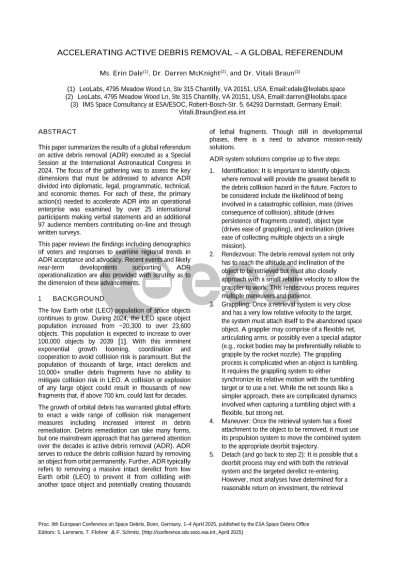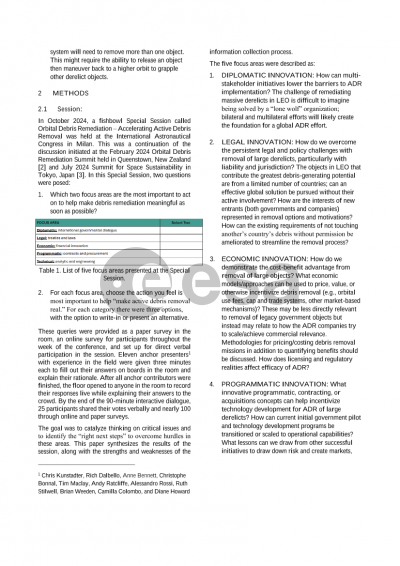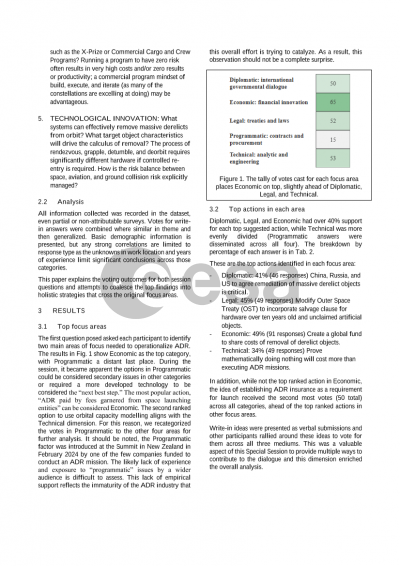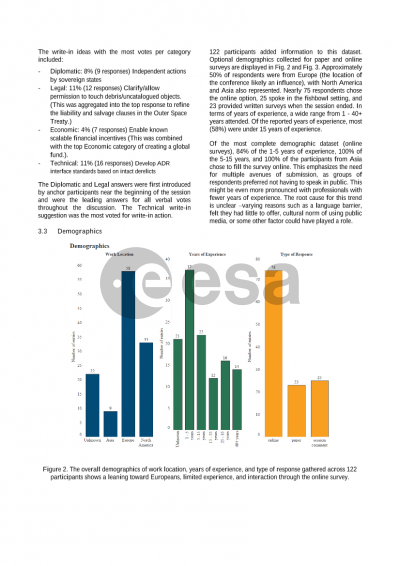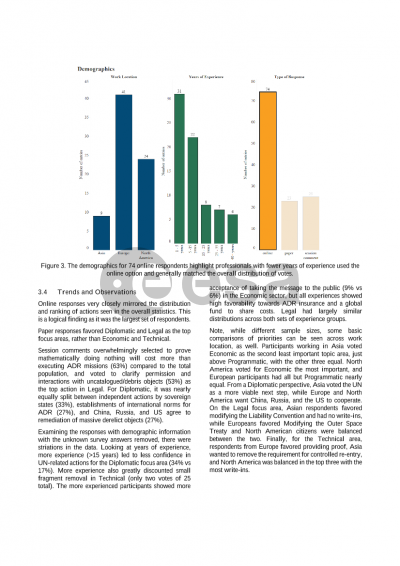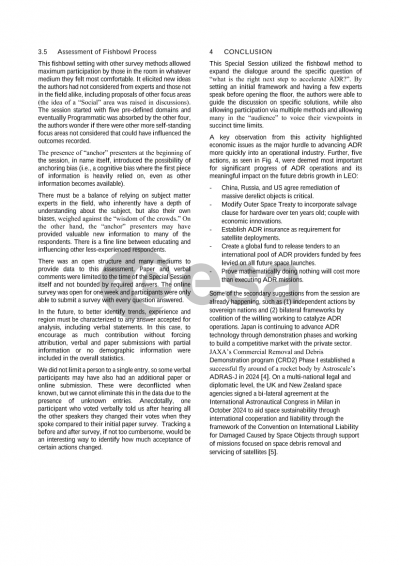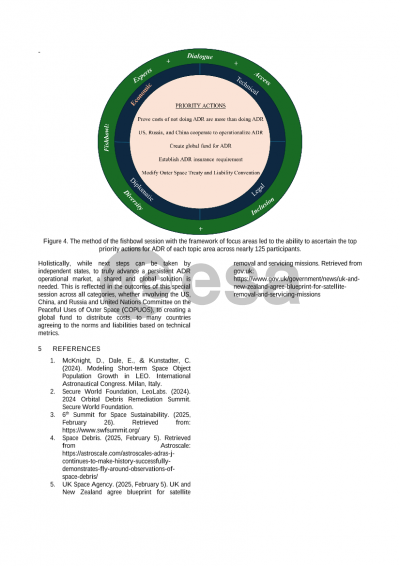Document details

Abstract
The growth of orbital debris has warranted global efforts to enact a wide range of debris mitigation measures including increased interest in debris remediation. Debris remediation can take many forms, but one mainstream approach that has garnered attention over the decades is active debris removal (ADR). ADR serves to remove an object from orbit permanently. Further, ADR typically refers to removing a massive intact derelict from low Earth orbit (LEO) to prevent it from colliding with other another space object and creating thousands of lethal fragments. Despite the growing population of intact derelict objects (i.e., abandoned rocket bodies and non-operational payloads) in LEO, ADR is still in the developmental stages.
This paper summarizes the results of a global referendum on the topic executed as a Special Session at the International Astronautical Congress in 2024. The focus of the gathering was to assess the key dimensions that must be addressed to advance ADR out of diplomatic, legal, programmatic, technical, and economic. For each of these, the primary action(s) needed to advance ADR into an operational enterprise was examined by over 30 international participants making verbal statements and an additional 90 audience members contributing on-line and through written surveys.
A key observation from this activity selected economic issues as the major hurdle to advancing ADR more quickly into an operational industry. Further, five actions were deemed most important for significant progress of ADR operations and its meaningful impact on the future debris growth in LEO:
- China, Russia, and US to agree remediation of massive derelict objects is critical. Modify Outer Space Treaty to incorporate salvage clause for hardware over ten years old; couple with economic innovations.
- Establish ADR insurance as requirement for launch.
- Government space programs release tenders to international pool of ADR providers funded by fee levied on all future space launches.
Prove mathematically doing nothing will cost more than executing ADR missions; requires technical analysis. This paper will review all the findings including demographics of voters and responses to examine regional trends in ADR acceptance and advocacy. Recent events and likely near-term developments supporting ADR operationalization are also provided with scrutiny as to the dimension of these advancements.
Preview
